- Home
- Jr. Horatio Alger
Slow and Sure: The Story of Paul Hoffman the Young Street-Merchant Page 10
Slow and Sure: The Story of Paul Hoffman the Young Street-Merchant Read online
Page 10
CHAPTER X.
A ROOM IN CENTRE STREET.
In a room on the third floor of a miserable tenement house in Centrestreet two men were sitting. Each had a forbidding exterior, andneither was in any danger of being mistaken for a peaceful,law-abiding citizen. One, attired in a red shirt and pants, wasleaning back in his chair, smoking a clay pipe. His hair was dark andhis beard nearly a week old. Over his left eye was a scar, thereminder of a wound received in one of the numerous affrays in whichhe had been engaged.
This was Jack Morgan, already referred to as the guardian of the boyJulius. He was certainly a disreputable-looking ruffian, and hischaracter did not belie his looks.
The other man was taller, better dressed, and somewhat morerespectable in appearance. But, like Jack, he, too, was a socialoutlaw, and the more dangerous that he could more easily assume an airof respectability, and pass muster, if he chose, as an honest man.
"Well, Marlowe," said Jack Morgan to the latter, who had just entered,"how's business?"
"Not very good," said Marlowe, shaking his head. "I haven't been sohard up for a long time. You haven't lost much by being shut up."
"I've had my board and lodging free," said Morgan; "but I'd ratherlook out for myself. I don't like free hotels." Marlowe smiled.
"That's where you're right, Jack. I never tried it but once, and thenI didn't like it any better than you."
"You're a sharp one. You always cover your tracks."
"The cops don't often get hold of me," said Marlowe, with pride. "Youremember that big bond robbery a year ago?"
"Yes. You wasn't in that?"
"Yes, I was."
"The rest of the fellows got trapped."
"That's so; but I heard in time and got off."
"Did you make anything out of it?"
"I made sure of a thousand-dollar bond."
"Did you put it off?"
"Yes; I sold it for half price."
"Where is the money?"
"It lasted me a month," said Marlowe, coolly. "I lived then, you canbet. But I haven't done much since. Do you see that?"
He took from his vest pocket a dollar greenback.
"What of it?"
"It's my last dollar."
"Then you've got to do something."
"Yes."
"Haven't you thought of anything?"
"I've got a plan that may work."
Here Julius entered, and his entrance produced a brief interruption."What luck, Julius?" asked Morgan.
"Nothing much. I got a bundle to carry for a quarter."
"Have you got the money?"
"There's ten cents. I bought my supper with the rest."
"Give it to me."
Jack Morgan took the ten cents and thrust it into his pocket.
"You ain't smart, Julius," he said. "You ought to have brought morethan that."
"Buy me a blacking-box and I will," said Julius.
"I'll see about it. But, Marlowe, you were just goin' to tell me ofyour plan."
"Shall I tell before him?" asked Marlowe, indicating the boy.
"Drive ahead. He's one of us."
"There's a house on Madison avenue that I've heard about. It belongsto a man that's gone to Europe."
"Then there isn't much left in it worth taking."
"That's where you're wrong. I've found out that he has left all hisplate locked up in a safe on the second floor and some bonds, too,it's most likely."
"Has he got much?"
"So I hear."
"Who told you?"
"A man that was in his service. He was discharged for drunkenness, andhe owes this Mr. Talbot a grudge."
"Is he a thief himself?"
"No, but he is willing to help us, out of revenge."
"Then you can depend on his information."
"Yes; there is no doubt of it."
"Is the house empty?"
"No; there's a family in charge."
"That's bad."
"Not so bad; it's a widow, with two children--one a little boy ofeight or thereabouts, the other sixteen."
"Do you know anything about them?"
"The oldest boy is a street peddler. He keeps a necktie stand belowthe Astor House."
Hitherto Julius had not taken much interest in the conversation. Thathis disreputable guardian should be planning a burglary did not strikehim with surprise. It seemed only a matter of course. But the lastremark of Marlowe put a different face upon the matter. Thedescription was so exact that he felt almost certain the boy spoken ofmust be his new friend, to whom he had been indebted for the bestdinner he had eaten for many a day. He began to listen now, but nottoo obtrusively, as that might awaken suspicion.
"A boy of sixteen may give trouble," said Jack Morgan.
"He is easily disposed of," said Marlowe, indifferently.
"I wish it were only the woman and little boy we had to deal with."
"We can easily secure the boy's absence for that night."
"How?"
"I can't tell yet, but there's plenty of ways. He might be arrested ona false charge and kept over night in the station-house. Or there'sother ways. But I can't tell till I know more about him. A lettermight be sent him, asking him to go over to Brooklyn."
"Wouldn't do. His mother would get somebody else in his place."
"We must find out all about him. How's that boy of yours? Is hesharp?"
"He ought to be. He's knocked about for himself long enough."
"We can try him. Come here, my son."
Julius rose from his seat and walked up to the pair.
"Hark you, my lad, can you do as you're told?"
Julius nodded.
"We've got something for you to do. It'll lead to money--do you hear?"
"I hear," said Julius.
"Have you heard what we were talking about?"
"I heard, but I didn't mind."
"Then I want you to hear, and mind, too, now. Have you ever seen anecktie stand between Dey and Cortlandt streets?"
"Yes."
"There's a boy keeps it."
"I've seed him."
"So far so good, then. Do you know anything about him?"
Julius shook his head.
"Then I want you to find out all you can about him. Find out if he'sgot any friends in Brooklyn, or just outside of the city. I'll tellyou what I know about him, and then you must learn as much more aspossible. Do you know his name?"
"No."
"It is Paul Hoffman. He and his mother live in a house that they takecare of on Madison avenue. We want to break into that house some nightnext week and carry off some plate and bonds that are in the safe. Ifwe make the haul we'll do well by you."
"I understand," said Julius, nodding intelligently.
"What we want," pursued Marlowe, "is to have the boy sleep out of thehouse the night we make the attempt. That will leave the coast clear.If the woman wakes up and discovers us, we'll threaten to kill her ifshe makes any fuss. Do you hear?"
Julius nodded again.
"Do you think you can do what we want?"
"Yes."
"That's well. We'll wait for the boy's report before we lay our plans,Jack. Now that's settled, we'll send out for some whisky and drinksuccess to the job."
"Then you must find the money, Marlowe, for I'm dead broke."
"Here, boy, take this," said Marlowe, handing Julius the bill he hadrecently displayed, "and bring back a pint of whisky."
"All right," said Julius.
"And mind you bring back the change, or I must go without breakfastto-morrow morning."
"I'll remember," said Julius.
When he had gone out, Marlowe said: "Where did you pick up that boy,Jack? He isn't your son, is he?"
"No; I have no son. I picked him up one day when he was a little chap.He didn't seem to belong to nobody; so I took him home, and he's beenwith me ever since."
"Where does he go when you are shut up, Jack? That's a good part ofthe time, you know."
&nb
sp; "Into the streets. He picks up a living there somehow. I don't askhow."
"And he always comes back to you when you get out again?"
"Yes."
"Loves you like a father, eh?" said Marlowe, laughing.
"He's used to me," said Jack, indifferently.
Not being sentimental, he never troubled himself to expect affectionfrom his young ward, and would not have felt very deeply afflicted ifhe had deserted him. Still, he, too, had got used to the society ofJulius, who was the only living thing that clung to him, and probablywould have felt a degree of regret at his loss. There are few, howevercallous, who do not feel some satisfaction in companionship.
Marlowe laughed.
"What are you laughing at?" said Jack.
"I was thinking, Jack, that you wasn't exactly the right sort to trainup a boy in the way he should go, and all that. If he takes pattern byyou, it's easy to tell where he'll fetch up."
"He ain't a bad sort," said Jack.
"Has he ever been over to the island?"
"No."
"Then he hasn't followed your teaching, that's all I can say."
"Never mind about the boy," said Jack, who had grown weary of thesubject. "He can take care of himself."
Here Julius reappeared with the whisky. Both men brightened up at thesight of their favorite beverage.
"Have you got a pack of cards?" asked Marlowe.
"Are there any cards?" asked Jack, appealing to Julius.
The boy found some hidden away in the cupboard, and the men takingthem were soon intent upon a game of poker. Julius looked on for atime, for he, too, knew something of the game; but after a time hebecame drowsy, and threw himself upon a pallet in the corner, which heshared with his guardian. He didn't sleep immediately, however, fornow that his attention was drawn away from the game, he began toconsider how he should act in the matter which had been confided tohim. Should he prove true to his guardian and treacherous to Paul, orshould he repay the latter for the kindness he had received at hishands? It was a difficult question. While he was pondering it his eyesclosed and he fell asleep.
The men continued to play for about two hours, for penny stakes. Thegame had no interest for them unless something was staked upon it, andthe winner pocketed his winnings with as much satisfaction as if ithad been a thousand times as large.

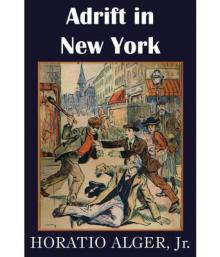 Adrift in New York: Tom and Florence Braving the World
Adrift in New York: Tom and Florence Braving the World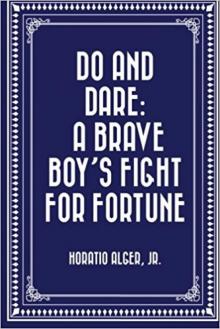 Do and Dare — a Brave Boy's Fight for Fortune
Do and Dare — a Brave Boy's Fight for Fortune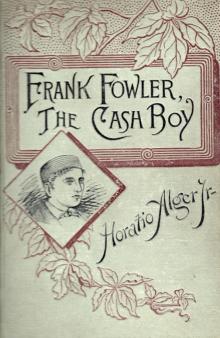 The Cash Boy
The Cash Boy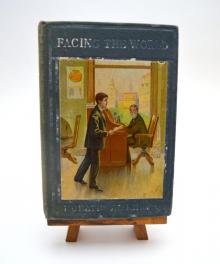 Facing the World
Facing the World The Young Explorer; Or, Claiming His Fortune
The Young Explorer; Or, Claiming His Fortune The Store Boy
The Store Boy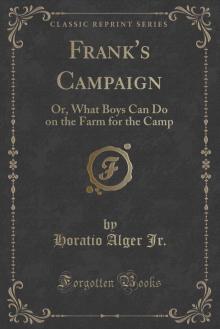 Frank's Campaign; Or, The Farm and the Camp
Frank's Campaign; Or, The Farm and the Camp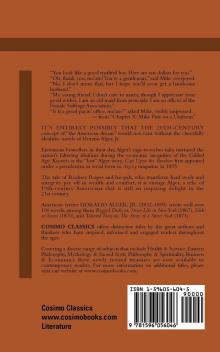 Cast Upon the Breakers
Cast Upon the Breakers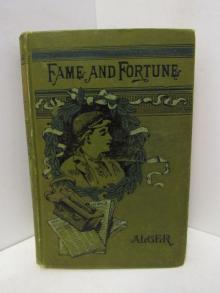 Fame and Fortune; or, The Progress of Richard Hunter
Fame and Fortune; or, The Progress of Richard Hunter The Errand Boy; Or, How Phil Brent Won Success
The Errand Boy; Or, How Phil Brent Won Success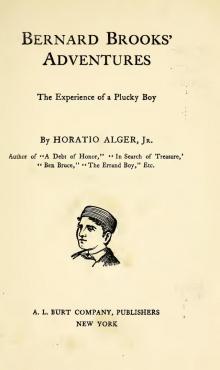 Bernard Brooks' Adventures: The Experience of a Plucky Boy
Bernard Brooks' Adventures: The Experience of a Plucky Boy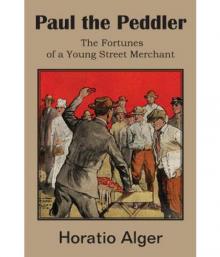 Paul the Peddler; Or, The Fortunes of a Young Street Merchant
Paul the Peddler; Or, The Fortunes of a Young Street Merchant Brave and Bold; Or, The Fortunes of Robert Rushton
Brave and Bold; Or, The Fortunes of Robert Rushton Try and Trust; Or, Abner Holden's Bound Boy
Try and Trust; Or, Abner Holden's Bound Boy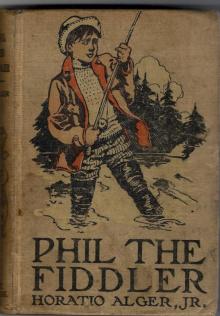 Phil, the Fiddler
Phil, the Fiddler In A New World; or, Among The Gold Fields Of Australia
In A New World; or, Among The Gold Fields Of Australia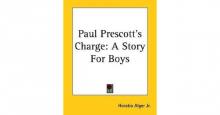 Paul Prescott's Charge
Paul Prescott's Charge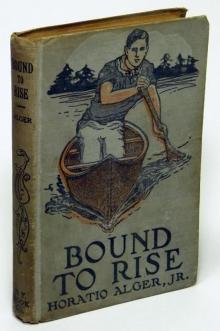 Joe's Luck; Or, Always Wide Awake
Joe's Luck; Or, Always Wide Awake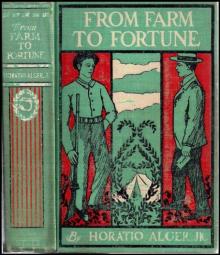 From Farm to Fortune; or, Nat Nason's Strange Experience
From Farm to Fortune; or, Nat Nason's Strange Experience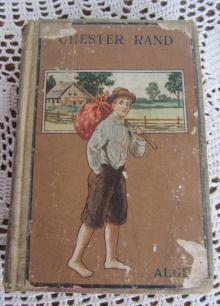 Chester Rand; or, The New Path to Fortune
Chester Rand; or, The New Path to Fortune Driven from Home; Or, Carl Crawford's Experience
Driven from Home; Or, Carl Crawford's Experience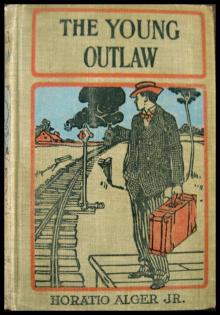 The Young Outlaw; or, Adrift in the Streets
The Young Outlaw; or, Adrift in the Streets Risen from the Ranks; Or, Harry Walton's Success
Risen from the Ranks; Or, Harry Walton's Success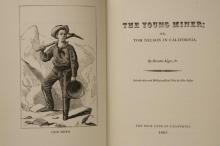 The Young Miner; Or, Tom Nelson in California
The Young Miner; Or, Tom Nelson in California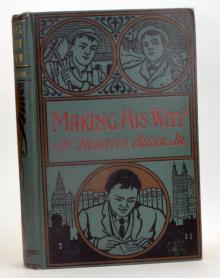 Making His Way; Or, Frank Courtney's Struggle Upward
Making His Way; Or, Frank Courtney's Struggle Upward Ben, the Luggage Boy; Or, Among the Wharves
Ben, the Luggage Boy; Or, Among the Wharves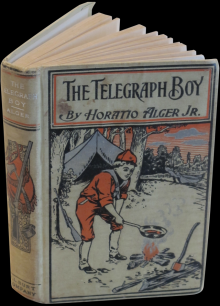 The Telegraph Boy
The Telegraph Boy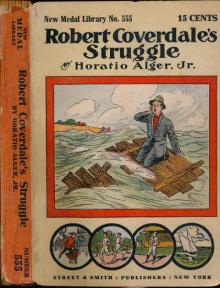 Robert Coverdale's Struggle; Or, on the Wave of Success
Robert Coverdale's Struggle; Or, on the Wave of Success Rufus and Rose; Or, The Fortunes of Rough and Ready
Rufus and Rose; Or, The Fortunes of Rough and Ready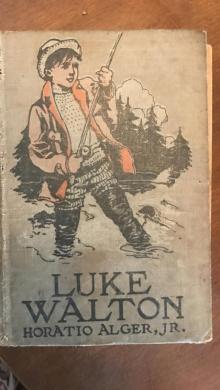 Luke Walton
Luke Walton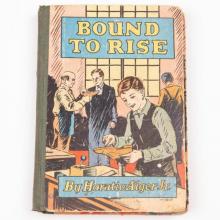 Mark Mason's Victory: The Trials and Triumphs of a Telegraph Boy
Mark Mason's Victory: The Trials and Triumphs of a Telegraph Boy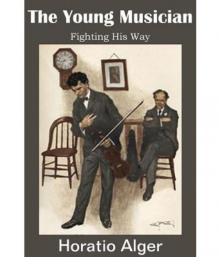 The Young Musician; Or, Fighting His Way
The Young Musician; Or, Fighting His Way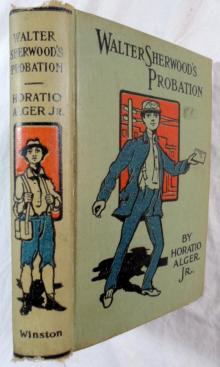 Walter Sherwood's Probation
Walter Sherwood's Probation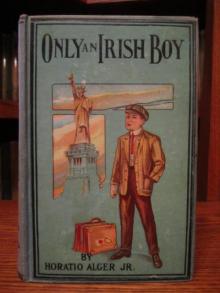 Only an Irish Boy; Or, Andy Burke's Fortunes
Only an Irish Boy; Or, Andy Burke's Fortunes Slow and Sure: The Story of Paul Hoffman the Young Street-Merchant
Slow and Sure: The Story of Paul Hoffman the Young Street-Merchant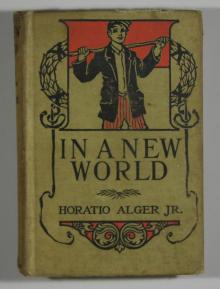 Herbert Carter's Legacy; Or, the Inventor's Son
Herbert Carter's Legacy; Or, the Inventor's Son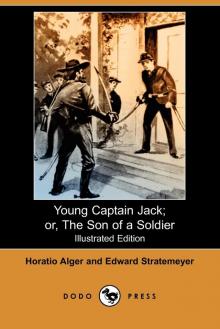 Young Captain Jack; Or, The Son of a Soldier
Young Captain Jack; Or, The Son of a Soldier Timothy Crump's Ward: A Story of American Life
Timothy Crump's Ward: A Story of American Life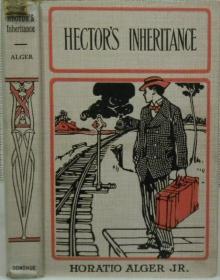 Hector's Inheritance, Or, the Boys of Smith Institute
Hector's Inheritance, Or, the Boys of Smith Institute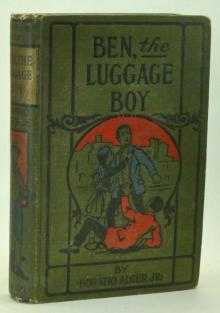 Ben's Nugget; Or, A Boy's Search For Fortune
Ben's Nugget; Or, A Boy's Search For Fortune